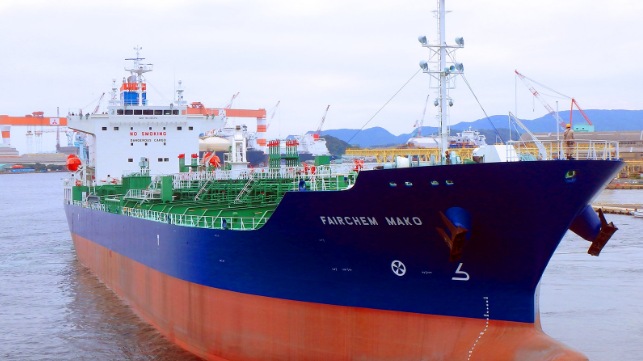ITF: 300,000 Crewmembers Stuck on Board Due to COVID-19 Shutdown

The International Transport Workers’ Federation (ITF) said Thursday that it estimates that there are now about 300,000 seafarers beyond their original contract and working aboard ships due to the ongoing crew change crisis. An equal number of unemployed seafarers are waiting to join them who are ashore, making an estimated 600,000 seafarers who are affected by COVID-related travel restrictions and other government policies that inhibit crew change.
ITF arrived at its estimate by applying the percentage of ITF members who are stuck on board to the global seafaring workforce at large. As of June 2020, at least one quarter of the seafarers currently working on ITF-represented ships are now overdue for repatriation – a total of more than 90,000 seafarers. There are a total of about 1.2 million seafarers worldwide, including mariners on non-ITF ships, and if they are all past-contract at the same rate, at least 300,000 are ready to rotate off and head home.
Today marks one month since the ITF told the world’s governments that ‘Enough is Enough’ and that the federation and its affiliates would be assisting the world’s seafarers in enforcing their right to stop working, get off and be repatriated to their homes and families, following completion of their contracts.
says in the month since July 15 there has been some positive movement, but too little progress has been made by governments to bring in the practical exemptions and protocols needed to support functioning crew changes across the world.
“300,000 seafarers are trapped working aboard these vessels, and another 300,000 are facing financial ruin at home, desperate to relieve these ships and start earning wages again. Governments are the biggest barrier to resolving the growing crew change crisis,” said ITF General Secretary Stephen Cotton. “Governments must act before we see more people die, or worse – a major maritime disaster. Urgent action is required,”
The announcement comes one month after ITF announced that its affiliates would help seafarers enforce their right to stop working and be repatriated after their contracts end.
“We put a line in the sand last month to make it clear that the ITF and our affiliates are prepared to support seafarers in exercising their right to stop working, get off, and return home to their families, once their contract has finished and it is safe to do so. In the last month, we have provided advice and assisted thousands of seafarers on how they can enforce this fundamental right,” said Stephen Cotton.
“We commend the governments which have brought in options for seafarers to disembark and be relieved by fresh crew, such as visas on arrival and visa waivers, but the sad fact is that globally governments aren’t doing near what is needed and some governments have even gone backwards,” said Dave Heindel, chair of the ITF Seafarers Section. "Those countries that rely on maritime trade, like Australia and Russia – must start pulling their weight on this issue.”

that matters most
Get the latest maritime news delivered to your inbox daily.
Heindel also said that ITF would be watching closely and following up to track the actions of 13 governments who pledged to improve the situation at a virtual summit on crew change earlier this month. "Governmental lip service is no longer an acceptable solution,” he said. "We are prepared to explore other options to influence more governments to take this crisis seriously."
ITF promised to shine a light on any cases of seafarer intimidation or blacklisting over the exercise of the right to stop working and seek repatriation after the expiration of a contract. "We will defend them from any attempts to blame them for the inevitable consequences of the worlds’ fleet operating with an increasingly tired, fatigued crew," Heindel said.
